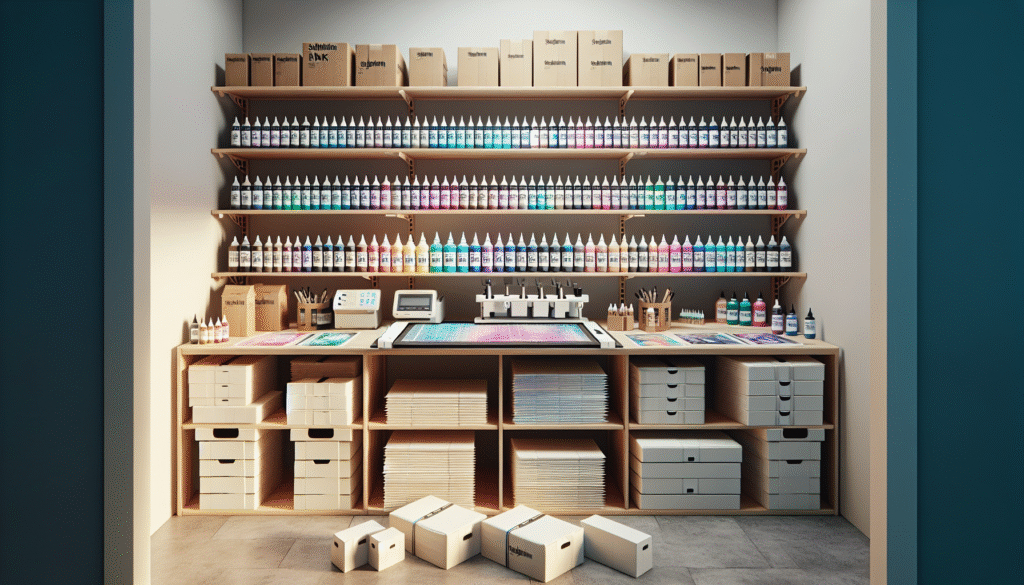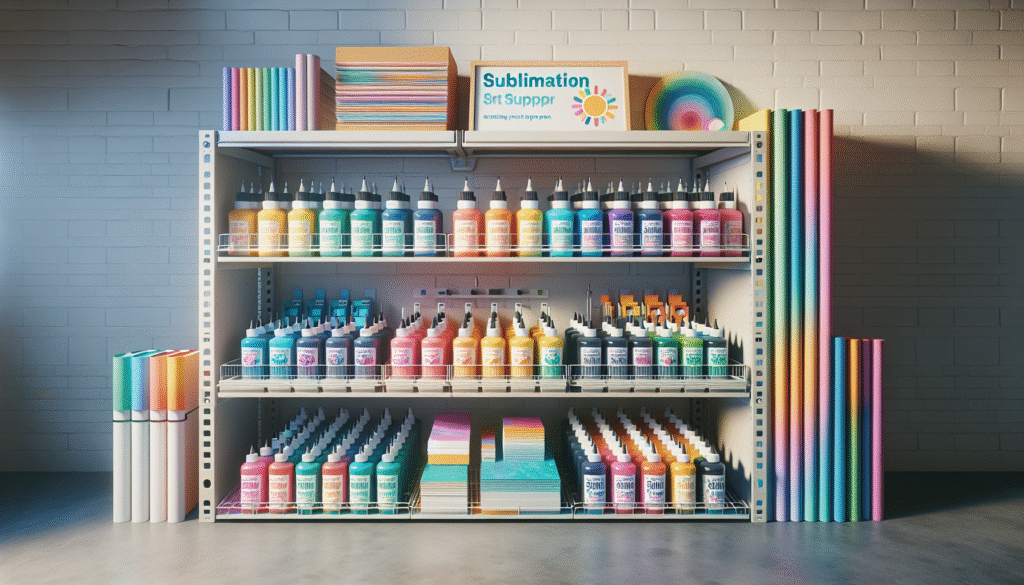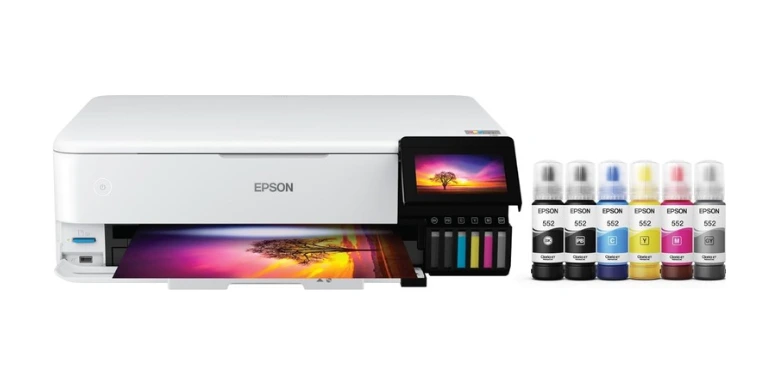Have you ever wondered why our sublimation inks and papers don’t seem to last as long as they should? It’s frustrating, isn’t it, to open a drawer expecting to find perfectly usable materials only to discover that they’ve been silently turning against us, plotting their metamorphosis into dried or faded forms? As fans of sublimation processes, we know the importance of protecting our vital tools. Let’s explore how to maximize the shelf life of sublimation inks and paper, reviving our faith in their longevity once more.

Understanding Sublimation Inks and Paper
What Are Sublimation Inks?
Sublimation inks are a type of dye-based ink specifically formulated to change from solid to gas state without passing through a liquid form when heat is applied. This process enables vibrant, durable prints that are resistant to fading or washing away. The magic behind sublimation inks lies in their chemical composition, designed to offer depth and longevity, but, alas, they do require proper handling and storage to remain in tip-top condition.
The Role of Sublimation Paper
Sublimation paper, on the other hand, is the unsung hero in the sublimation process. This specialized paper holds the ink firmly in place until heat and pressure inevitably transform it into glorious permanent prints on chosen substrates. Without its steadfast dedication, our vibrant visions wouldn’t see the light of day. But alas, like the inks, sublimation paper demands a certain degree of reverence, lest we discover its deteriorated state at the most inopportune times.
Factors Affecting Shelf Life
Temperature and Humidity Struggles
The shelf life of our sublimation inks and papers can be quite vulnerable to environmental elements, particularly temperature and humidity. High temperatures might cause ink to destabilize, while low temperatures can trigger coagulation. Humidity, as we can all agree, is temperamentally sneaky—it can make paper swell and discolor at its whim or cause ink to dry faster than that toast we forgot in the toaster this morning.
Light Exposure
Like vigilant watchdogs, sublimation inks and papers eyes everything suspiciously, especially sunlight. Excessive exposure to light can lead to premature fading of inks and a dreary dulling of paper, much like a fabric left too long to bake on a sunlit clothesline.

Proper Storage Practices
Optimal Temperature Conditions
To protect our sublimation inks, store them in a controlled environment, preferably between 59°F to 77°F (15°C to 25°C). This range ensures a comfortable resting place where the ink can lounge without fear of freezing or boiling over. It’s similar to how we best enjoy our favorite cozy sweater weather—not too hot, not too cold.
Maintaining Humidity Levels
Humidity should be regulated to around 40% to 60% for both inks and paper. Just as our moods fluctuate when the weather gets wacky, sublimation products fare best in balanced conditions. A humidity gauge could be a wise investment—it will let us know when our storage area needs an intervention with a dehumidifier or a cup of water to recalibrate nature’s erratic dance.
Avoiding Light Damage
Store inks and paper away from direct sunlight. Cabinets, drawers, or any opaque receptacle will help shield these fragile creations from harsh lighting, keeping their purity intact for as long as possible. It is akin to tucking them away for a cozy night’s rest, with dreams of being brilliant and unblemished by dawn.
Proper Handling and Positioning
When dealing with inks, keeping them in an upright position ensures that the dye doesn’t settle where it shouldn’t while preventing leaks that might result from tipping. As for paper, store it flat to avoid any unfortunate curlings. Think of them like precious porcelain dolls resting in their cases—handled with care and positioned for preservation.
| Factor | Inks | Paper |
|---|---|---|
| Temperature | 59°F to 77°F (15°C to 25°C) | Same |
| Humidity | 40% to 60% | 40% to 60% |
| Light Exposure | Avoid direct sunlight | Avoid direct sunlight |
| Positioning | Keep upright | Store flat |
Monitoring and Maintenance
Regular Checks
Just as we diligently check our refrigerators for spoiled leftovers, maintaining regular checks on sublimation inks and paper is imperative. Inks should appear rich and free of sediment, while papers should look and feel smooth and crisp. Making these assessments part of our routine helps forestall any dastardly surprises, encouraging us to stay on course.
Using Fresh Products
While it can be tempting to use every last drop of ink or sheet of paper, sometimes clinging to remnants of the past does more harm than good. Pay attention to the expiration dates, and open new packages to ensure we’re always using fresh, reliable materials. Much like blending together the contents of two near-empty shampoos when desperate, these shortcuts may not always yield optimal results.
Additional Tips for Longevity
Using Airtight Containers
Consider storing inks in airtight containers to further protect them from unexpected changes in humidity and air contact. These measures ensure that inks are literally sealed in freshness, waiting eagerly for the call to action.
Paper Sealers
We might also ponder using resealable plastic bags to envelop our sublimation paper, safeguarding them from wear and tear. They embrace our resources closely, like an affectionate relative with a penchant for bear hugs, keeping harmful elements at bay.
Environmental Considerations
Eco-Friendly Practices
Embracing eco-friendly storage methods can serve as our small, beneficial contribution to protecting the planet while gaining organized harmony. Reinvent used containers or cases rather than opting for new ones, reducing our carbon footprint one clever storage solution at a time.
Recycling and Disposal
Lastly, let’s declare a solemn vow to dispose of sublimation inks and paper responsibly once they’re no longer needed. Safe disposal or recycling could prevent any harmful chemicals or materials from entering the environment, so please part ways with them thoughtfully.
Conclusion
Optimizing the shelf life of sublimation inks and paper is as much an art as their final application might be. By understanding their delicate nuances, instituting mindful storage practices, and performing regular checks, we can ensure that these materials remain our unwavering partners in creativeness. In safeguarding our beloved sublimation supplies, we also safeguard the future brilliance of our designs. Together, let’s cultivate a storage strategy that respects both the utility of the products and the inspirations they help bring to life.
